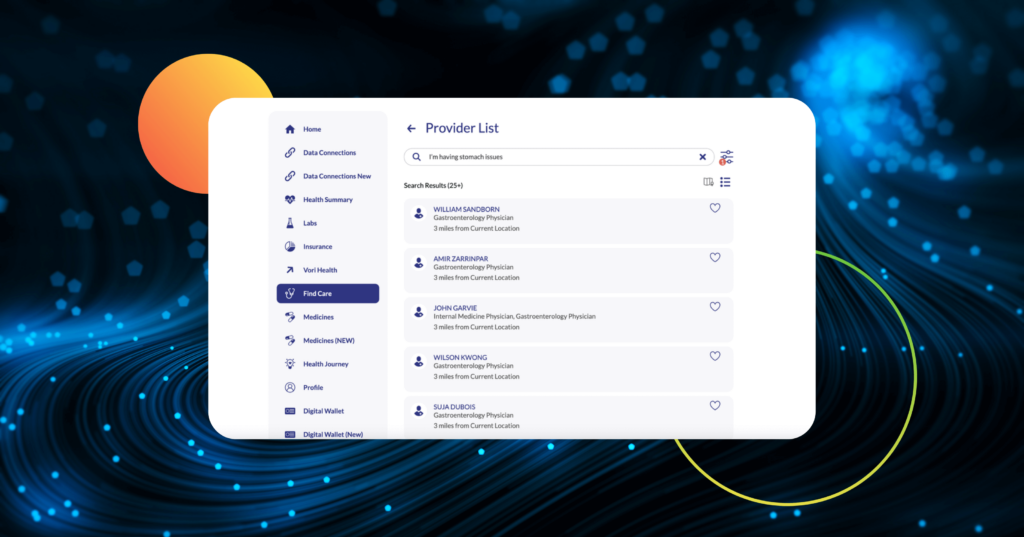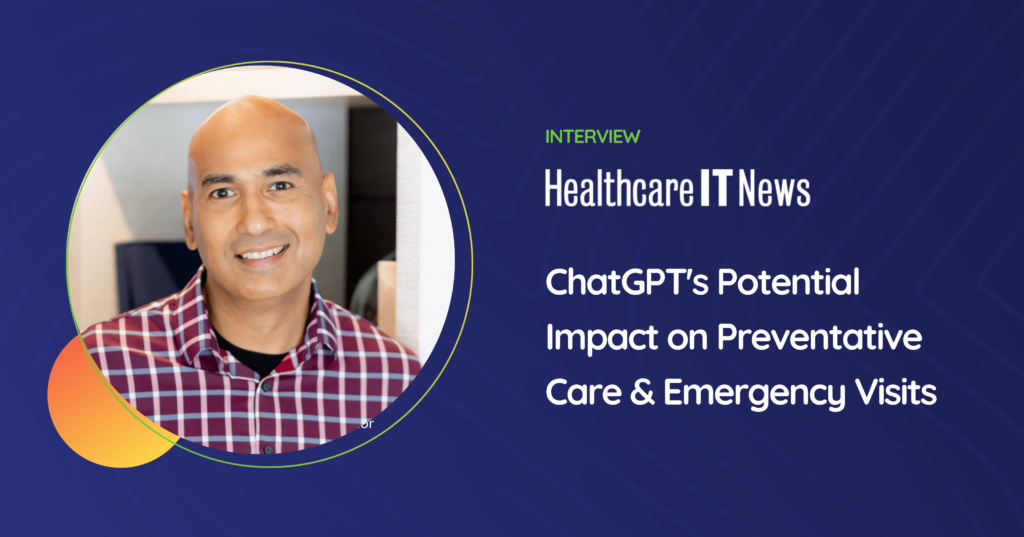The potential of AI in healthcare has been widely debated, often with a focus solely on its diagnostic capabilities. While diagnosing diseases is certainly a crucial function of AI, the real game-changer may lie in AI’s ability to enhance clinical workflows and operational efficiency. Beyond diagnosis, AI is revolutionizing how healthcare is delivered by streamlining decision-making, optimizing processes, and enabling clinicians to focus on providing high-quality care. In other words — AI can reduce the administrative burden so providers can go back doing what they do best — and that’s delivering human-centered care.
From the Discuss & Disrupt series’ recent webinar, “Is Staff Burnout a Symptom of Neglected Patient Experience?” featuring Krisen Valdes, b.well Founder and CEO, Robert Bart, CMIO at UPMC, and Lee Schwamm, SVP and CDHO with YaleNewHavenHealth, AI tools are increasingly being recognized for their ability to reduce the administrative burden on clinicians and improve the overall care experience. This shift is crucial as healthcare systems face increasing pressure to deliver value-based care, where improved outcomes, operational efficiency, and patient satisfaction are inextricably linked.
Enhancing Clinician Efficiency and Patient Outcomes with the Power of AI in Healthcare
There’s a growing narrative that AI might replace medical professionals in the future, but that view is overly simplistic and doesn’t account for the true complexities of healthcare delivery. In reality, AI works best when it augments the clinician’s role, acting as a tool that delivers insights, predicts patient outcomes, and facilitates real-time decision-making.
“I think where AI can really help is as a frontline engagement solution for patients. It can efficiently route requests to get the fastest answers. For example, if you’re calling for directions, AI can provide them. If you’re confirming an appointment, it can tell you that you’re all set. For questions like whether your co-pay will exceed a certain amount or if something is covered by insurance, AI can handle those too. We don’t need to route those inquiries to a human unless it’s absolutely necessary. And when a human is needed, AI can seamlessly hand it off.” – Lee Schwamm, M.D., SVP & CDHO, YaleNewHavenHealth
Use Cases:
- In the management of chronic conditions such as diabetes or cardiovascular disease, AI can assist clinicians by analyzing patient records, monitoring trends, and predicting future health outcomes so they can intervene at the right time with personalized recommendations.
- Consider risk-based models for patient management. AI-driven tools can assess and predict patient risks by integrating data from various sources, including electronic health records (EHRs), wearable devices, and even genomic data. This allows clinicians to better balance the trade-offs between risk, benefit, and cost. This becomes especially important as healthcare moves toward models like value-based care, where reimbursements are tied to outcomes rather than services rendered.
- Analyzing consumer behavioral data and sentiment from surveys and NPS, AI identifies patterns of disengagement or dissatisfaction, enabling healthcare organizations to offer targeted communication and adjust their marketing strategies to retain patients. This approach encourages patients to reschedule and return for care, rather than seeking services elsewhere.
Optimizing Workflows and Reducing Burnout with AI for Operational Efficiency
The complexity of modern healthcare systems often leads to inefficiencies and clinician burnout, with 60% of physicians reporting burnout and 79% stating that reducing administrative burdens would be helpful.lAdministrative tasks like data entry, scheduling, and coding take up valuable time that could be spent on direct patient care. AI solutions have the potential to reduce the administrative burden on clinicians, optimizing workflows and allowing for more time with patients.
“I’m less focused on the diagnostic aspects of AI, which some of my colleagues are keen on. Instead, I’m more interested in tools that enhance clinicians’ efficiency and effectiveness. The complexities of balancing risks and benefits for patients have become quite intricate. What I see as valuable is a tool that supports clinicians with quantitative insights, helping them navigate the complexities of financial implications, patient outcomes, and risks. Tools that aid in this space will be crucial moving forward, as they will help us better understand what truly adds value.” – Robert Bart, M.D., CMIO, UPMC
Balancing Patient Expectations and Outcomes
In a healthcare environment increasingly focused on patient satisfaction, AI plays a key part in managing patient expectations, particularly in surgical or outcome-based procedures. Take joint replacement surgeries as an example. AI can provide personalized insights into patient outcomes based on a wide array of factors including medical history, age, and activity levels. This allows clinicians to set more accurate expectations with patients, reducing dissatisfaction when outcomes differ from unrealistic patient expectations.
The importance of patient-reported outcomes (PROs) is growing under value-based care models, where patient satisfaction and reported experiences is a critical factor in reimbursement. AI tools that integrate PROs into care delivery can help ensure that clinical interventions align not only with medical goals but also with patient-defined success metrics. This contributes to improved patient engagement and satisfaction, as patients feel their perspectives are being considered in the care process.
For healthcare systems looking to thrive in a value-based care environment, AI offers a way to enhance both clinical effectiveness and patient-centeredness. By providing real-time, data-driven insights, AI can help healthcare providers make more informed decisions, balancing patient expectations with realistic outcomes.
The Future of AI in Healthcare as a Tool for Transformation
The healthcare industry is already seeing the benefits of AI in areas such as diagnostics, patient monitoring, and workflow automation, but its potential extends far beyond these initial applications. From managing chronic diseases to personalizing care, AI will play a pivotal role in improving clinical efficiency, reducing burnout, and ultimately, enhancing patient outcomes—ensuring a healthcare system that is more effective, responsive, and patient-centered.
Stay tuned for more insights from our Discuss & Disrupt series, where we will continue to tackle the critical conversations shaping the future of healthcare. To learn more about b.well’s AI strategy, read more here.



